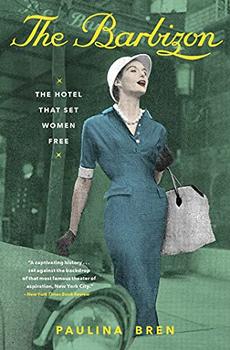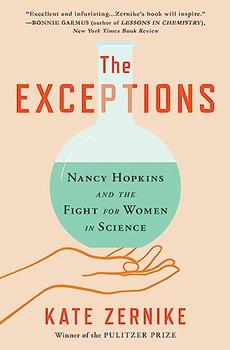Summary | Excerpt | Reviews | Beyond the book | Read-Alikes | Genres & Themes | Author Bio

The Hotel That Set Women Free
by Paulina BrenFrom award-winning author Paulina Bren comes the first history of New York's most famous residential hotel - The Barbizon - and the remarkable women who lived there.
Welcome to New York's legendary hotel for women.
Liberated from home and hearth by World War I, politically enfranchised and ready to work, women arrived to take their place in the dazzling new skyscrapers of Manhattan. But they did not want to stay in uncomfortable boarding houses. They wanted what men already had—exclusive residential hotels with daily maid service, cultural programs, workout rooms, and private dining.
Built in 1927 at the height of the Roaring Twenties, the Barbizon Hotel was intended as a safe haven for the "Modern Woman" seeking a career in the arts. It became the place to stay for any ambitious young woman hoping for fame and fortune. Sylvia Plath fictionalized her time there in The Bell Jar, and, over the years, its almost 700 tiny rooms with matching floral curtains and bedspreads housed Titanic survivor Molly Brown; actresses Grace Kelly, Liza Minnelli, Ali MacGraw, Jaclyn Smith, Phylicia Rashad, and Cybill Shepherd; writers Joan Didion, Diane Johnson, Gael Greene, and Meg Wolitzer; and many more. Mademoiselle magazine boarded its summer interns there, as did Katharine Gibbs Secretarial School its students and the Ford Modeling Agency its young models. Before the hotel's residents were household names, they were young women arriving at the Barbizon with a suitcase and a dream.
Not everyone who passed through the Barbizon's doors was destined for success—for some it was a story of dashed hopes—but until 1981, when men were finally let in, the Barbizon offered its residents a room of their own and a life without family obligations or expectations. It gave women a chance to remake themselves however they pleased; it was the hotel that set them free. No place had existed like it before or has since.
Beautifully written and impeccably researched, The Barbizon weaves together a tale that has, until now, never been told. It is both a vivid portrait of the lives of these young women who came to New York looking for something more, and an epic history of women's ambition.
The bulk of the book defines the Barbizon woman against the backdrop of America spanning from the stock market crash of 1929 through the Depression, the McCarthy era and the civil rights movement. Bren covers famous women on the hotel's illustrious guest list — including Sylvia Plath, Joan Didion, Grace Kelly and the Titanic's "unsinkable" Molly Brown — as her main and weighty subjects, but she also gives shape to lesser-known and equally important Barbizon residents such as Barbara Chase, Mademoiselle magazine's first African American guest editor, and Betsy Talbot Blackwell, who revolutionized the magazine industry during her time as editor-in-chief of Mademoiselle from 1937 to 1971...continued
Full Review
 (622 words)
(622 words)
(Reviewed by Kate Oberdorfer).
 I may well be the only woman who regrets not having lived in the early and middle decades of the 20th century. Sure, a woman was barely respected in her own kitchen, but she lived in the days when you still got dressed up to go to the grocery store. She lived in the days when there was still money in writing, when flight attendants passed out postcards so passengers could write to their families and friends mid-flight, and when the magazine Mademoiselle had highly coveted guest editor positions for young, smart and ambitious women. These were the days when Betsy Talbot Blackwell was the editor-in-chief of the magazine and resided at the Barbizon Hotel, which is so inextricably linked to Mademoiselle that it is impossible to tell the ...
I may well be the only woman who regrets not having lived in the early and middle decades of the 20th century. Sure, a woman was barely respected in her own kitchen, but she lived in the days when you still got dressed up to go to the grocery store. She lived in the days when there was still money in writing, when flight attendants passed out postcards so passengers could write to their families and friends mid-flight, and when the magazine Mademoiselle had highly coveted guest editor positions for young, smart and ambitious women. These were the days when Betsy Talbot Blackwell was the editor-in-chief of the magazine and resided at the Barbizon Hotel, which is so inextricably linked to Mademoiselle that it is impossible to tell the ...

If you liked The Barbizon, try these:

by Daniel M. Lavery
Published 2025
From the New York Times bestselling author and advice columnist, a poignant and funny debut novel about the residents of a women's hotel in 1960s New York City.

by Kate Zernike
Published 2024
From the Pulitzer Prize–winning journalist who broke the story, the inspiring account of the sixteen female scientists who forced MIT to publicly admit it had been discriminating against its female faculty for years—sparking a nationwide reckoning with the pervasive sexism in science.